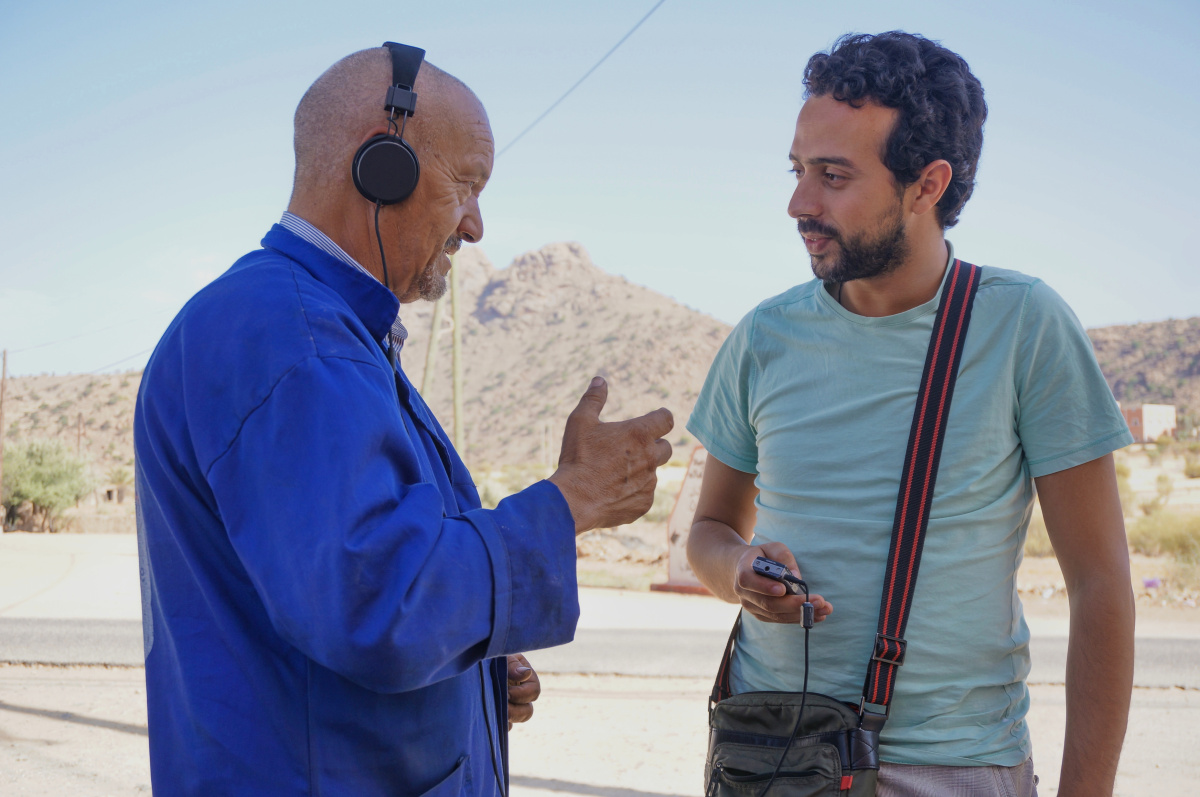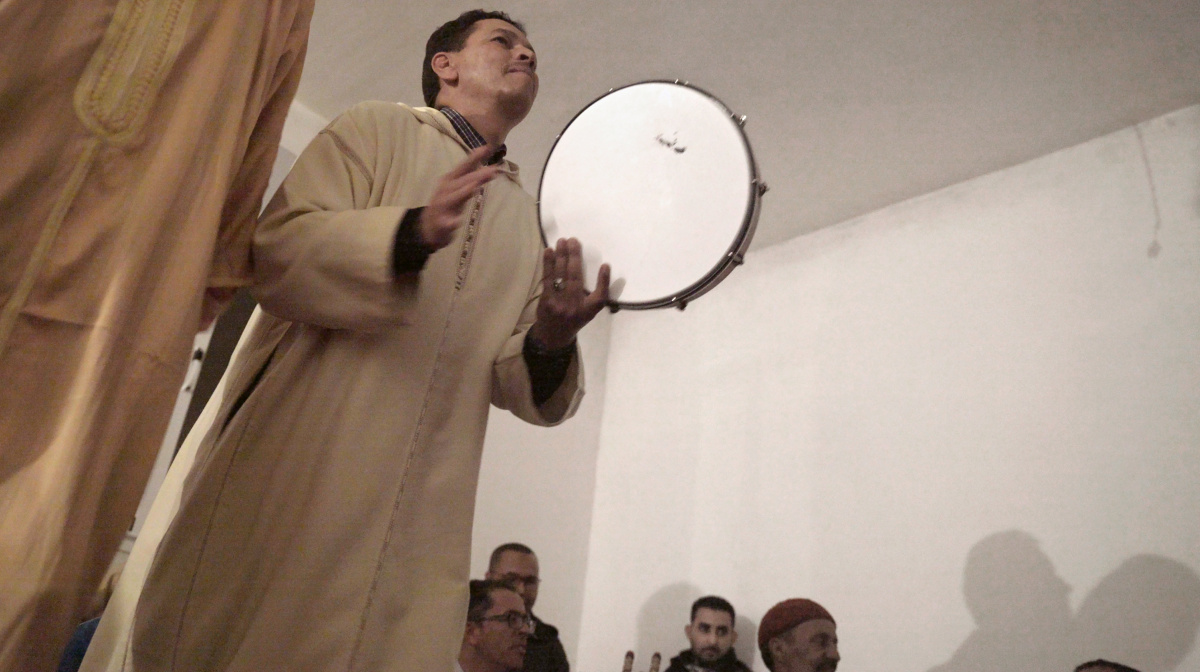
Listen That’s Us!
In 1959, the American writer Paul Bowles recorded an ahwash music performance in the Moroccan Berber town Tafraout. In 2013, Gilles Aubry initiated a research on the reception of these recordings in today’s Morocco, organizing listening sessions by inviting local musicians. Listeners from Tafraout offer comments on the «Paul Bowles Moroccan Music Collection».
The listening sessions with local musicians revealed a number of power asymmetries in Bowles’s recording practices, correlating with the social structures of colonialism in Morocco. Colonial continuities also surface in the celebration of «past traditions». It seems that current tensions in the field of cultural politics still echo power imbalances and erasure effects from the past. Gilles Aubry discusses Bowles’ project within the broader field of Western avant-garde music and «white aurality», where sound aesthetic concerns often go together with the invisibilization of the white, masculine, and Eurocentric standpoint.
This abstract refers to the chapter «Listen, That’s Us! Responses from Tafraout to the Paul Bowles Moroccan Music Collection (1959)» (pages 87–124) of the book «Sawt, Bodies, Species: Sonic Pluralism in Morocco» by Gilles Aubry, published by adocs in 2023. This contribution is part of the Norient Online Special Sawt, Bodies, Species, a joint publication with adocs, extending the physical book into a digital publication with additional video and audio materials. The Open Access publication of this book was made possible with the support of the Swiss National Science Foundation (SNSF).
Biography
Links
Published on May 04, 2023
Last updated on April 03, 2024
Topics
How can sound & music be preserved and at the same time evolve in line with the present?
From Beyoncés colonial stagings in mainstream pop to the ethical problems of Western people «documenting» non-Western cultures.
A generative practice that promotes different knowledge. One that listens is never at a distance but always in the middle of the sound heard.
How did the internet change the power dynamic in global music? How does Egyptian hip hop attempt to articulate truth to power?
From westernized hip hop in Bhutan to the instrumentalization of «lusofonia» by Portuguese cultural politics.

